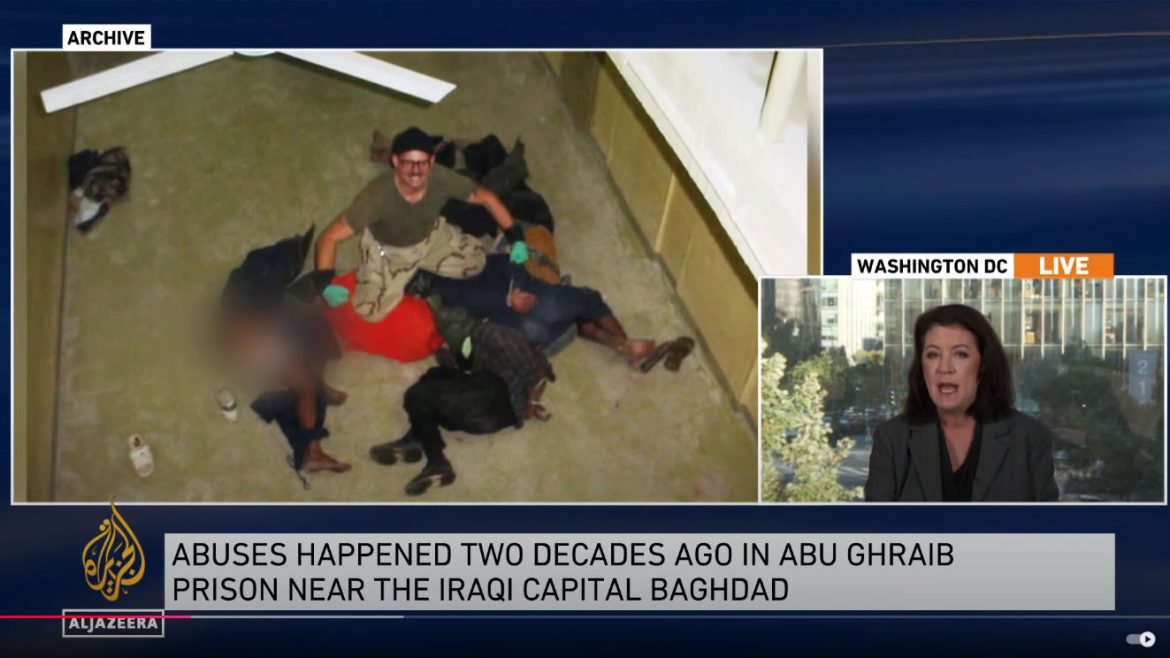In a landmark decision, a U.S. jury has awarded $42 million to three Iraqi men who suffered severe abuse, including electric shocks and beatings, at Abu Ghraib prison during the early years of the Iraq War. The verdict, delivered on Tuesday, holds defense contractor CACI Premier Technology accountable for its role in the infamous abuses at the U.S.-run prison, which became a global symbol of misconduct and human rights violations following the 2003 invasion of Iraq. This ruling is one of the most significant financial judgments to date involving the notorious prison abuses and reflects ongoing accountability efforts nearly two decades after the incidents occurred.
The plaintiffs, who were detained at Abu Ghraib on suspicion of insurgent activities, described brutal treatment, including physical assaults, prolonged shackling, sleep deprivation, and humiliation. The lawsuit alleged that CACI employees, contracted to conduct interrogations at the prison, directed or participated in abusive techniques, leading to physical and emotional trauma for the detainees. The jury’s decision to award $42 million in compensatory damages underscores the gravity of the abuses suffered by the plaintiffs, who have spent years seeking justice for their treatment.
Abu Ghraib prison first garnered international attention in 2004 when graphic photos emerged showing detainees subjected to degrading treatment by U.S. military personnel. Images of hooded detainees, forced into stress positions or stacked in human pyramids, shocked the world and drew widespread condemnation of U.S. military practices. The scandal exposed deep issues within the U.S. military’s handling of detainees and led to several military personnel being charged and convicted for their roles in the abuses. However, this case marked one of the rare instances in which a private defense contractor, rather than military personnel, has been held liable for involvement in the incidents.
CACI Premier Technology, which was contracted by the U.S. government to provide interrogation services at Abu Ghraib, continues to deny any involvement in abusive practices. In a statement, the company expressed disappointment in the verdict and reiterated that it does not condone any form of detainee mistreatment. CACI maintains that any abuses at Abu Ghraib were the result of “reckless and unauthorized actions” by a small group of military police and argues that its employees were not involved in unlawful conduct. The company has signaled that it may appeal the verdict.
Legal experts suggest that this judgment sets a significant precedent for holding private contractors accountable in cases involving human rights violations, particularly in war zones where contractors are often deployed alongside U.S. military forces. “This verdict reinforces the principle that private companies can and should be held responsible when they contribute to or are complicit in abuses,” said human rights attorney Jonathan Miller. “While military personnel have faced prosecution, this decision highlights the broader responsibility of all parties involved in these operations, including contractors.”
The ruling also renews focus on the broader implications of using private contractors in military operations. During the Iraq War, private companies were heavily relied upon for a range of functions, including security, logistics, and interrogation support, raising questions about oversight and accountability. Critics argue that contractors often operate in a legal gray area, making it difficult to enforce the same standards applied to military personnel.
For the three Iraqi plaintiffs, the jury’s decision represents a long-sought acknowledgment of their suffering and a step toward accountability. One of the plaintiffs, who spoke anonymously for fear of retaliation, expressed relief following the verdict. “We were treated inhumanely, and for years, we lived with the trauma and pain of those memories,” he said. “This decision cannot erase what happened, but it gives us hope that justice can still be served.”
The case has sparked renewed calls from human rights advocates for the U.S. government to strengthen oversight of contractors in conflict zones and to ensure transparent accountability mechanisms. Organizations like Human Rights Watch and Amnesty International have long criticized the use of private companies for sensitive military functions, arguing that the profit motives of such firms can compromise ethical considerations and lead to unchecked abuses.
As the legal battle with CACI potentially continues, the case adds to the complex legacy of the Iraq War and the U.S. military’s presence in the Middle East. It underscores both the resilience of survivors seeking justice and the enduring controversy over private contractor involvement in military conflicts. While the verdict provides a measure of justice for the plaintiffs, the broader implications for private contractors in U.S. military operations may continue to reverberate within the industry and among policymakers.



